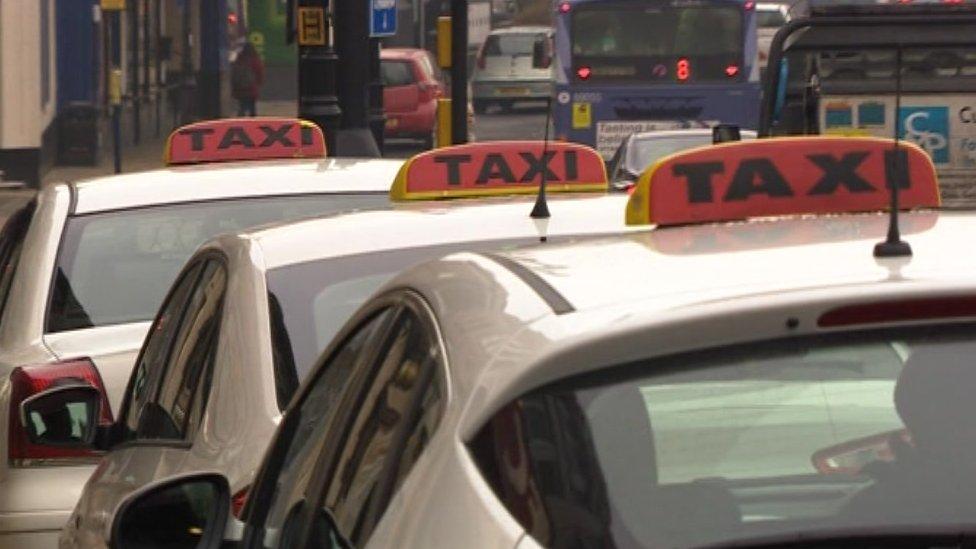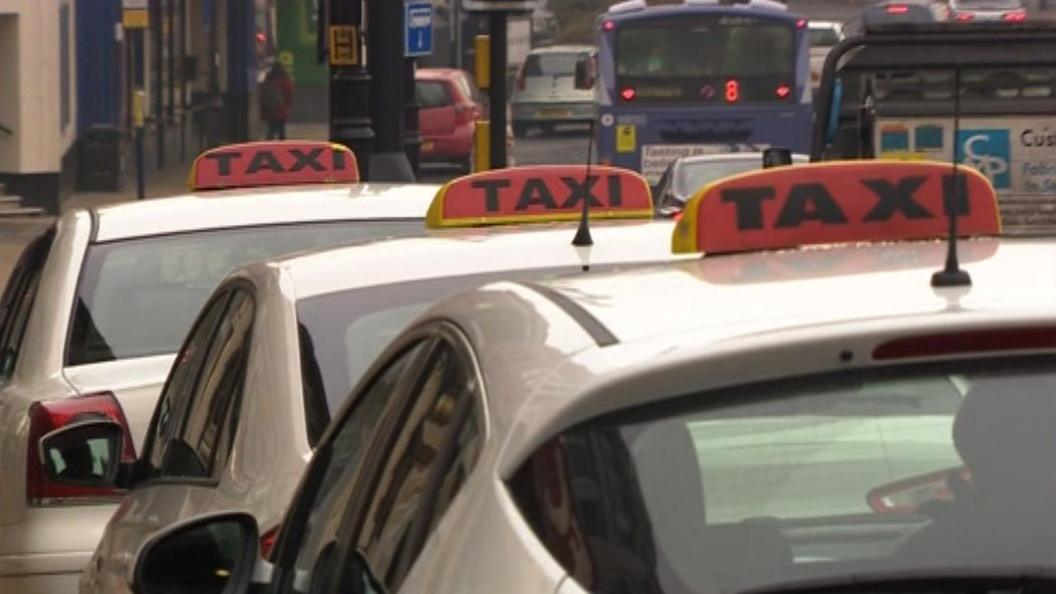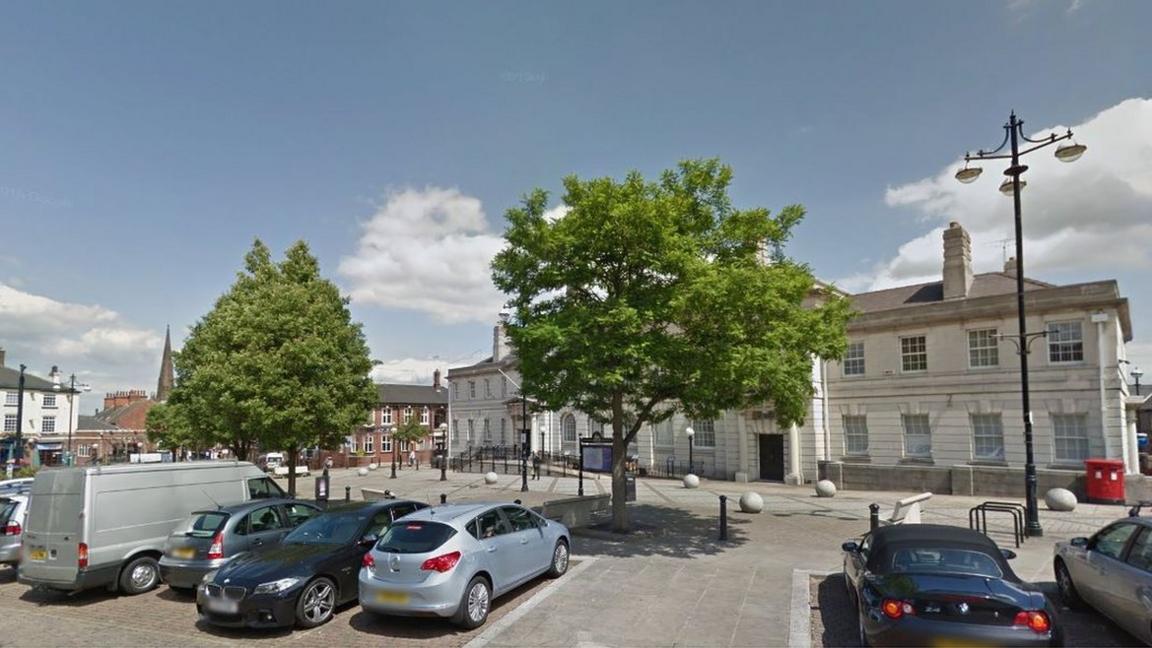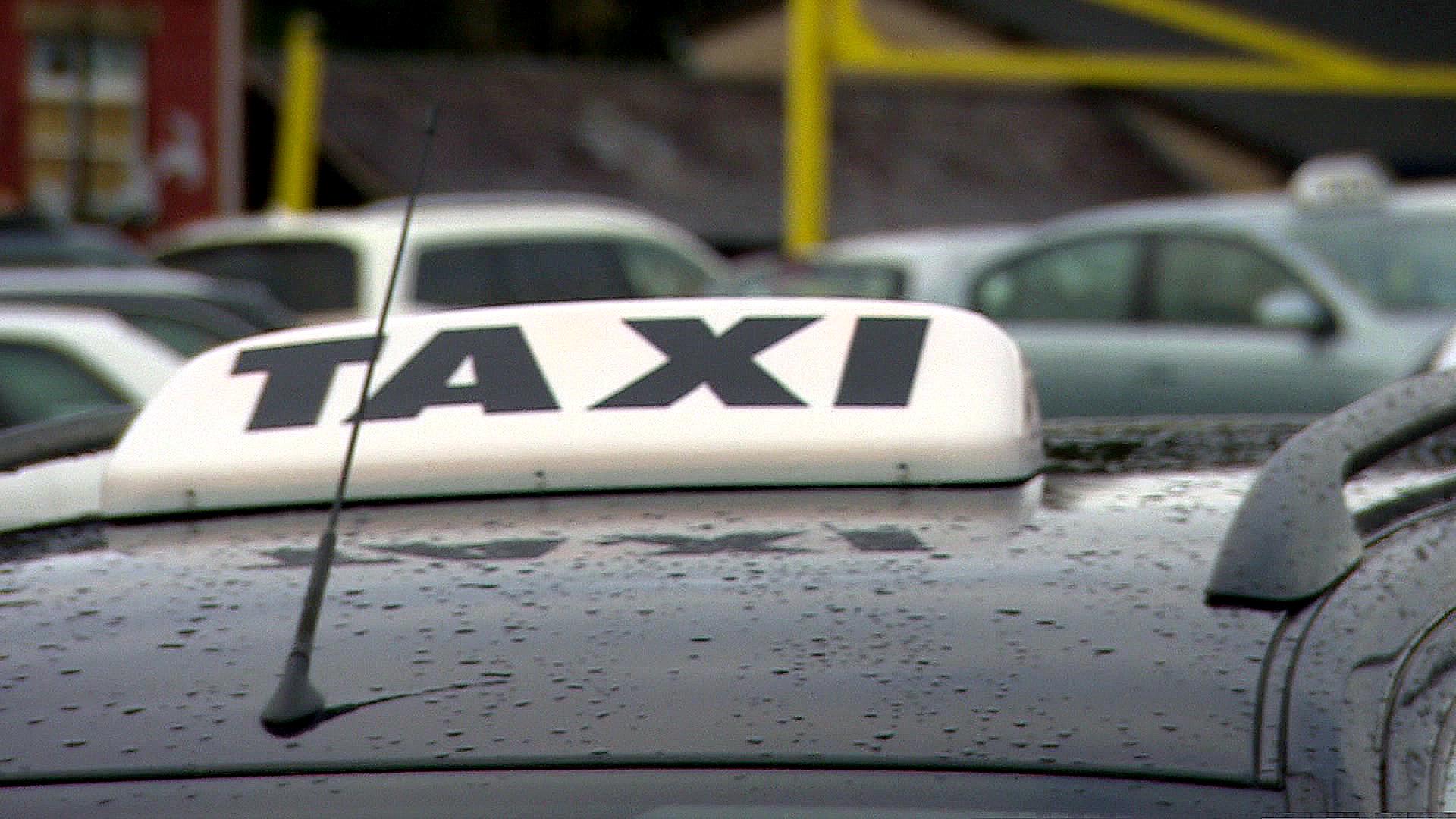Taxi loophole 'puts Rotherham children at risk', say MPs
- Published

Taxi drivers in Rotherham were said to have played a prominent role in the abuse of hundreds of girls between 1997 and 2013
MPs say a "legal loophole" is putting young people at risk by allowing taxi drivers to operate in Rotherham without meeting council-imposed standards.
MPs said drivers licensed by other local authorities could operate in the town even if their application for a Rotherham licence had been rejected.
A 2014 report said 1,400 children had been abused in the town and taxi drivers played a "prominent role".
The issue was raised by the Communities and Local Government Committee (CLGC).
It said swift action was needed by ministers.
'Without delay'
The Professor Alexis Jay report, external found hundreds of children were subjected to sexual abuse in the South Yorkshire town between 1997 and 2013.
The committee noted the concerns raised relate to a "very small minority" of drivers in Rotherham but they had undermined public confidence.
It concluded there was a need for government departments to introduce statutory guidance in law over taxi licensing "without delay", adding legislation should be considered if this fails to deliver the high standards needed across the country.
"We believe that local authorities must be able to apply particular measures in relation to taxi licensing in their areas, such as requiring taxis to have CCTV installed, without those measures being undermined by taxis coming in from other areas," it said.
Rotherham, which has an estimated 1,100 drivers, introduced new rules requiring drivers to install CCTV cameras in the wake of Prof Jay's findings.
The CLGC made the recommendation following an inquiry into the government's imposition of commissioners in Rotherham in February 2015 and the London borough of Tower Hamlets in December 2014.
The committee's other conclusions included the need for local authorities to learn from the experiences of Rotherham and Tower Hamlets about the need to "encourage and support" whistleblowers and to take their concerns "seriously".
The MPs also suggested that local authorities subject to government intervention should pick up the costs despite tightened budgets.
- Published18 March 2016

- Published21 January 2016

- Published26 August 2015

- Published1 July 2015

- Published27 June 2015

- Published5 February 2015
